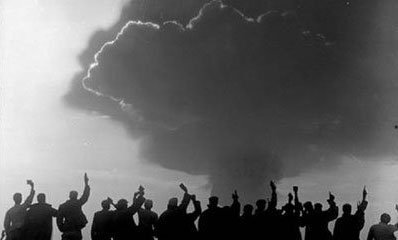
Earlier this month China voted with the United States at the UN Security Council on a new set of sanctions aimed at getting Iran to comply with its legal obligations under the Nuclear Non-Proliferation Treaty (NPT). Secretary of State Clinton and President Obama chastised the Iranian leadership for their continued obstinacy and emphasized the unprecedented severity of the new sanctions. China stressed the need for renewed dialog and negotiation, reminding the Iranians that compliance could lead to the revocation of all UN sanctions.
It is unlikely that the U.S. and China are intentionally acting out a “good cop, bad cop” routine. While the U.S. pushed hard for new sanctions, China cast its vote with great reluctance. What accounts for China’s reluctance? Typical speculation ranges from the idea that China is simply an irresponsible member of the international community to its not wanting to offend a key oil supplier.
Many factors may have influenced China’s decision, but one that has not been considered in the United States is that China’s view of sanctions has been shaped by its past, which appears to have led it to question whether using condemnation, isolation, and punishment is an effective way to enforce the NPT. This has led to a fundamental disagreement with the United States: The U.S. sees sanctions as potentially effective diplomacy and a means to avoid military action. China sees sanctions as a hostile act that is more likely to strengthen Iranian resolve than to weaken it. They may not be wrong.
China’s view of sanctions grows out of its own experience. China’s determination to build the bomb was steeled by the same international isolation and condemnation Iran is experiencing today. Mao Zedong and the Chinese Communist Party were viewed as reckless and unpredictable in Washington as well as in Moscow, which terminated its early assistance to China’s program shortly after it began. China was diplomatically isolated, blockaded, barred from the UN, unrecognized in the West, and pressured by an increasingly hostile Soviet Union, with whom it maintained a long and heavily militarized border.
Many of those involved in the Chinese nuclear weapons program claim with great pride that their successful effort to develop the bomb allowed Chinese to sit up straight in the face of external threats and international isolation. Deng Xiaoping, who succeeded Mao after his death in 1976, believed China’s decision to develop nuclear weapons and the means to deliver them was central to their international stature as a great power, and a cornerstone of the self-confidence and security that underlay its eventual evolution into today’s China.
Moreover, the isolation slowed China’s program but did not stop it, and in fact encouraged China to develop and build up its technical capabilities so it could make nuclear weapons and missiles on its own. This domestic technical capacity has benefited the country in many ways—civil and military—and ultimately helped make its military programs less susceptible to sanctions and other foreign pressure.
China’s current leaders recognize the world has changed and that the proliferation of nuclear weapons is an existential threat to the international order on which China’s own peace and prosperity depends. In the end, that appears to have convinced them to support the sanctions. But in looking at the Iranian nuclear question and the American-led effort to resolve it with the same tactics that not only failed to stop their predecessors but encouraged China to build the bomb, its doubts and therefore its reluctance may not be surprising.
